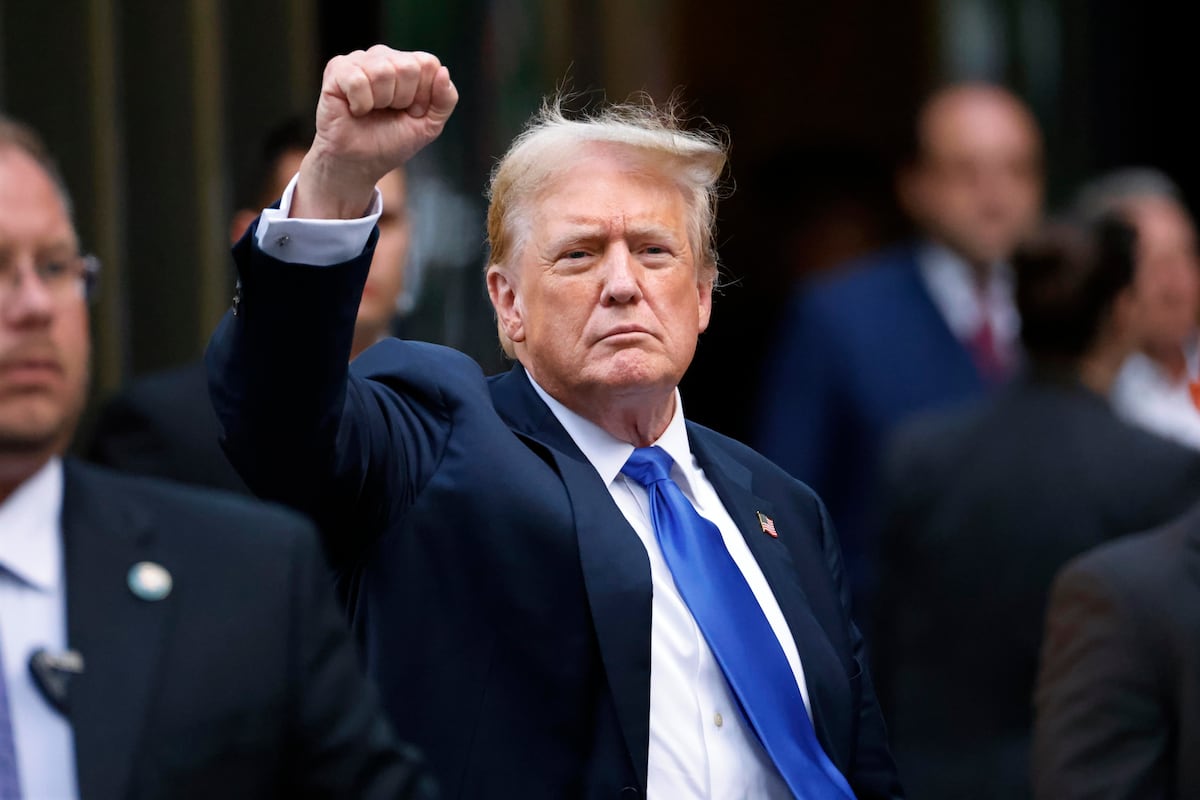Judge indefinitely postpones Trump’s sentence in ‘Stormy Daniels case’ usa elections

Donald Trump continues to avoid conviction for the 34 crimes of which a popular jury found him guilty last May. The judge in charge of the case, Juan Merchan, has decided to indefinitely postpone the sentencing of the president-elect. Sentencing was scheduled for Tuesday, November 26. Initially the sentencing date was July 11. The first time it was delayed until September due to the Supreme Court’s decision on presidential immunity. The judge later decided to postpone the sentencing until after the presidential elections and the new date was 26 November. Now it has been postponed indefinitely.
The judge also agreed to a request by Trump’s defense to file a new motion to dismiss the case, giving the Republican’s lawyers a December 2 deadline to submit their documents. Prosecutors have until December 9 to respond. Trump’s team wanted time till December 20 to submit its paperwork.
Trump was found guilty by a popular jury on 34 counts of forging checks, invoices and accounting records. His intention was to conceal a $130,000 payment made to porn film actress Stormy Daniels – to keep her quiet and not harm his electoral prospects in the 2016 presidential elections. Falsifying business records is punishable by up to four years in prison, although the sentences for each offense may be served concurrently. In cases like Trump’s – not to mention that he is now president-elect – it was already unlikely that the convicted person would go to jail. Usually, you are placed on probation or fined.
Furthermore, Trump’s own election leaves the fulfillment of any hypothetical sentence up in the air. “Just as a sitting President is completely immune from any criminal prosecution, so too is President Trump the President-elect,” Trump’s lawyers Todd Blanch and Emil Bove argued in court. He also argues that he cannot be punished after completing his sentence because a lot of time would have passed. Both Blanch and Bove have been nominated by Trumo for senior positions at the Justice Department.
The jury’s decision made Trump the first former president to be convicted of a crime. When he takes office on January 20, if the conviction is upheld, he will be the first convicted criminal to become president.
The former president’s defense strategy has been based on procrastination and postponing cases until after the election. Due to his maneuver, Trump has avoided sitting in the dock in his three other criminal cases, which he could have avoided by becoming President.
In the New York case, for which he was the only one to stand trial, he first sought to overturn the conviction under the principle of the Supreme Court’s decision that gave presidents broad criminal immunity for their official acts. Following that ruling, Judge Merchan gave the parties a deadline to present their allegations and provisionally set September 18 as the new date for sentencing and September 16 for a ruling on immunity. Then those dates were extended. It has also not yet ruled on whether the principle of immunity affects the case.
Trump’s lawyers now add the Justice Department’s practice of not pursuing sitting presidents to the immunity doctrine. By analogy, his lawyers believe it should also apply to the president-elect.
(Tags to translate) US election
